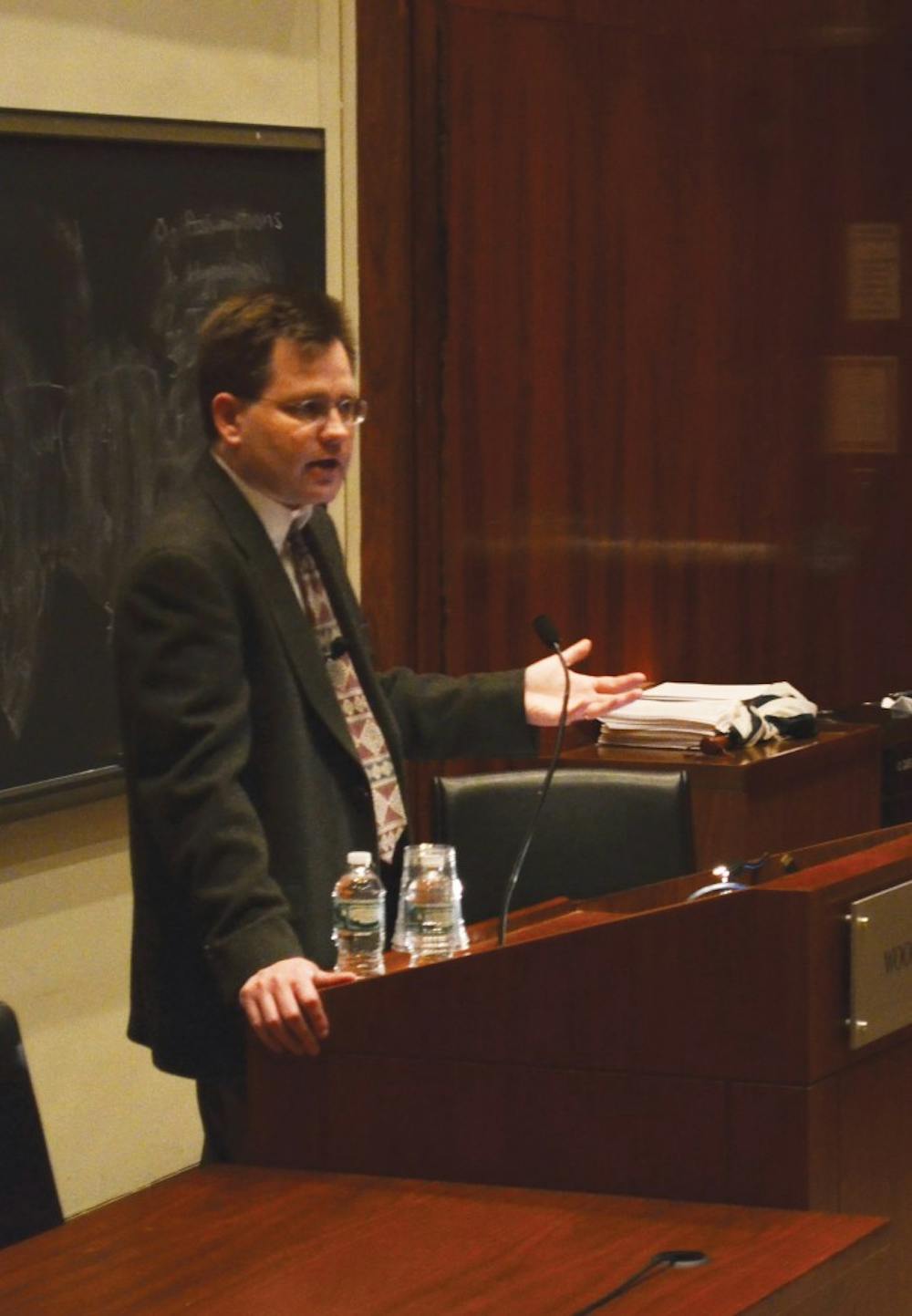 The Constitution should represent democratically endorsed political ideas and beliefs, and if we enforce inherited rules on which the polity no longer agrees, the Constitution can become a cage that binds citizens, politics professor Keith Whittington argued in a lecture on Tuesday.
The Constitution should represent democratically endorsed political ideas and beliefs, and if we enforce inherited rules on which the polity no longer agrees, the Constitution can become a cage that binds citizens, politics professor Keith Whittington argued in a lecture on Tuesday.
Whittington is the William Nelson Cromwell Professor of Politics and director of graduate studies of the Politics Department at the University.
Whittington introduced the larger context behind his argument by discussing the work of University of Texas Law School professor Sanford Levinson, using Levinson’s work to highlight the persistent theme in political thought that the Constitution needs overhauling. Whittington noted that in the view of scholars like Levinson, the Constitution’s flaws cause gridlock and its mechanisms prevent change.
However, Whittington narrowed his discussion to address how a Constitutional trap can be avoided. Whittington dwelled on three points to frame his argument: higher law, interpretation and the ability to change the Constitution.
To determine what fundamental principles are, Whittington said, we must begin by determining our higher law. Whittington explained that he believes higher laws to be self-evident truths that are accepted because of their moral correctness.
In turn, higher laws are related to interpretation, Whittington claimed, because Constitutional rules can then be “understood in the light of moral principles.”
The ability to change the Constitution is also necessary for it to reflect the changing principles of the polity, he argued, adding that subsequent generations cannot make conscious choices on Constitutional principleswithout a mechanism for change.
“At the end of the day, the [constitutional rules] that we are willing to engage in must be both reasonable and voluntary,” he said.
He also supported the argument that Constitutional rules need to be representative of deliberation and choice by noting Framer Thomas Jefferson’s concern that one generation should not bind another to its principles. He explained that inherited rules enforced because we believe they should not be contravened are tantamount to the imposition of a “foreign power’s” ideals, where the foreign power is a previous generation.
Instead, on issues of constitutional deliberation, the majority must determine what guiding principles will be used to create constitutional rules and influence interpretation, Whittington said.
He added that by doing so, “democracy is not trapped by the Constitution, democracy instead creates the Constitution.”
The 13thAnnual Walter F. Murphy Lecture in American Constitutionalism, entitled “Is the Constitution a Cage?” took place at 4:30 p.m. at Dodds Auditorium. Itwas cosponsored by the James Madison Program in American Ideals and Institutions and the Program in Law and Public Affairs.









